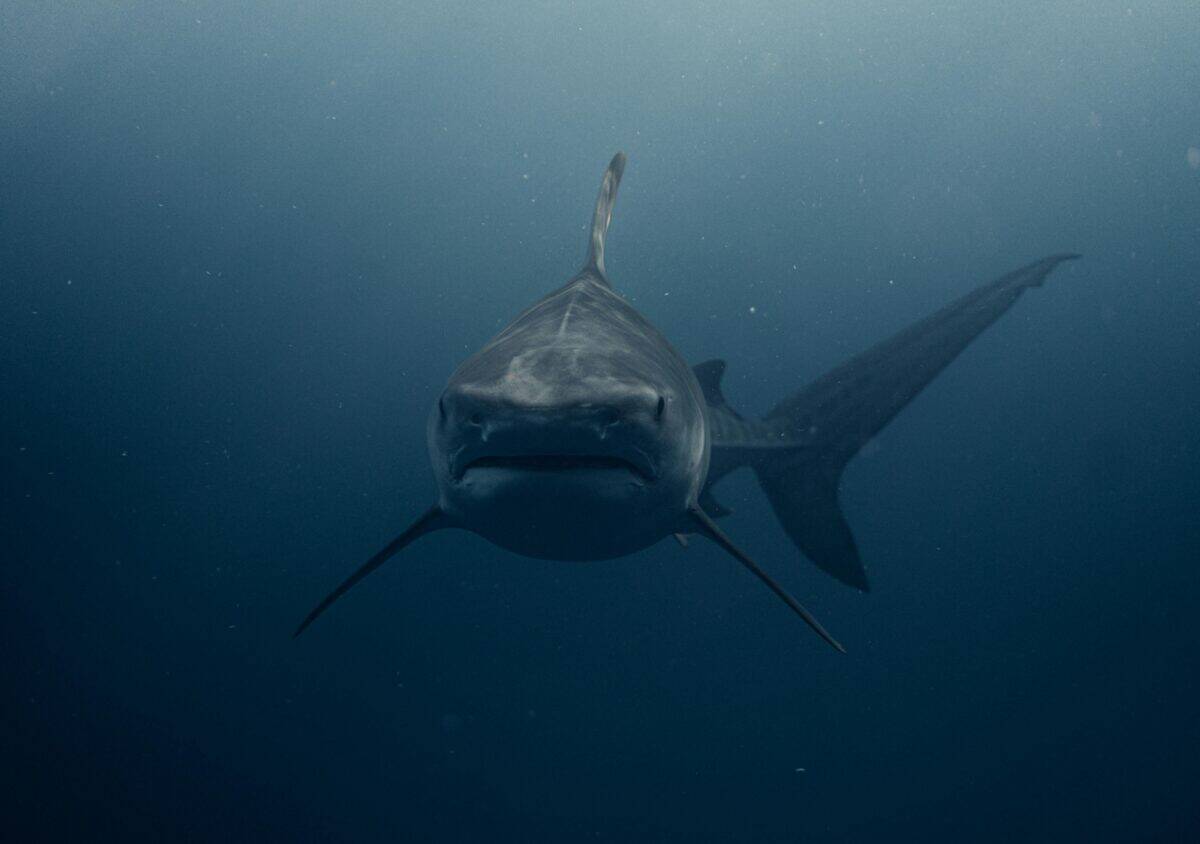On May 30, 2025, 25-year-old surfer Sean Barton was bitten by a shark while riding a wave off Sunset Beach, North Carolina. Barton was in waist-deep water when the shark latched onto his left leg. Despite the sudden attack, he managed to paddle back to shore and alert others. Emergency responders treated him on the beach before transporting him to a nearby hospital.
Barton, who has been surfing since childhood, told local media that he felt a sharp tug before realizing his leg was bleeding. “It felt like something just clamped down hard—then I saw the fin,” he said. Fortunately, the bite missed major arteries. He later posted on social media, expressing gratitude that his young nieces and nephews, who were also at the beach, were unharmed.
Shark Sightings Rising Along the East Coast

This incident is part of a broader pattern. Shark sightings and encounters are increasing along the East Coast, particularly during late spring and summer. Warmer waters, increased baitfish near shorelines, and human water activity all contribute to heightened risk.
According to the International Shark Attack File, the U.S. had the most unprovoked shark attacks in the world in 2024, with 28 of the 69 confirmed cases globally. Florida led the pack with 14 incidents, followed by Hawaii and California. Though North Carolina sees fewer attacks, the state has recorded spikes during peak tourist season in past years.
Surfers Face Higher Risk Than Most Beachgoers

Surfers are disproportionately affected by shark bites. In 2024, 34% of victims were surfers or those participating in board sports. Experts say this is due to their extended time in deeper water and the visual similarity between paddling humans and seals, a common shark prey.
Marine biologists emphasize that most shark bites are investigative, not predatory. Sharks may mistake a limb or surfboard for prey and retreat after a single bite. Still, injuries can be severe, and prompt emergency care is essential for survival.
Authorities Increase Patrols and Public Safety Measures
Following the attack, local lifeguards increased patrols and temporarily posted shark advisory signs along Sunset Beach. Drones and spotter aircraft were also deployed to monitor nearby waters. North Carolina wildlife officials encouraged swimmers to avoid murky water, refrain from swimming at dawn or dusk, and stay in groups—sharks are more likely to target individuals.
Some beachgoers expressed hesitation about returning to the water so soon. Others, including Barton’s family, hope the attack serves as a wake-up call for greater awareness and preparedness during peak beach months.
- Bride Surprises Groom With Rescued Animals at Bachelor Party - August 7, 2025
- White Deer Duo Stuns Iowa Family on Backroad Drive - August 1, 2025
- Iguana Fell and Hit Florida Man in the Face During Cold Snap - July 18, 2025

